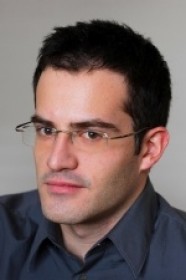PhD Thesis Defense
Context and Subcategories for Sliding Window Object Recognition
Event Location: NSH 3305Abstract: Object recognition is one of the fundamental challenges in computer vision, where the goal is to identify and localize the extent of object instances within an image. The current de facto standard for building high-performance object category detectors is the sliding window approach. This approach involves scanning an image with a [...]
Lifelong Robotic Object Recognition
Event Location: NSH 3305Abstract: In this thesis, we study the topic of Lifelong Robotic Object Perception. We propose, as a long-term goal, a framework to recognize known objects and to discover unknown objects in the environment as the robot operates, for as long as the robot operates. We build the foundations for Lifelong Robotic Object [...]
Model Recommendation for Action Recognition and Other Applications
Event Location: GHC 4405Abstract: The typical approach to learning based vision has been that for each individual application, classifiers or detectors are learned anew from annotated training data for each specific task. However, the classifiers trained in this way tend to be brittle and highly specialized to the datasets from which they are derived, making [...]
Object Instance Discovery from Scenes of Daily Living
Event Location: NSH 1507Abstract: This thesis tackles the problem of automatically discovering objects from a collection of images from the Activities of Daily Living (ADL) environment. We contribute, 1) a framework for discovering object instances under severe clutter, occlusion, changes of view point, heterogeneity of object appearance and imperfect segmentation; 2) a data-driven approach for [...]
Toward an Automated System for the Analysis of Cell Behavior: Cellular Event Detection and Cell Tracking in Time-lapse Live Cell Microscopy
Event Location: GHC 4405Abstract: Time-lapse live cell imaging has been increasingly employed by biological and biomedical researchers to understand the underlying mechanisms in cell physiology and development by investigating behavior of cells. This trend has led to a huge amount of image data, the analysis of which becomes a bottleneck in related research. Consequently, how [...]
Cross-cultural believability of robot characters
Event Location: GHC 4405Abstract: Believability of characters is an objective in literature, theater, animation, film, and other media. Virtual characters, believable as sharing their ethnic background with users, improve their perception of the character and, sometimes, even their task performance. Social scientists refer to this phenomenon as homophily---humans tend to associate and bond with similar [...]
Lightweight Robotic Excavation
Event Location: GHC 8102Abstract: Planetary excavators face unique and extreme engineering constraints relative to terrestrial counterparts. In space missions mass is always at a premium because it is the main driver behind launch costs. Lightweight operation, due to low mass and reduced gravity, hinders excavation and mobility by reducing the forces a robot can effect [...]
The Design of Control Architectures for Force-controlled Humanoids Performing Dynamic Tasks
Event Location: NSH 1305Abstract: This talk is about improving the process of designing controllers for humanoid robots. It describes tools we designed that enable us to iterate faster when experimenting with control systems that aggregate multiple model based sub-controllers. Many model based humanoid controllers can be considered approximations to a fully general, but computationally intractable, [...]
Interactive Learning for Sequential Decisions and Predictions
Event Location: NSH 1305Abstract: Sequential prediction problems arise commonly in many areas of robotics and information processing: e.g., predicting a sequence of actions over time to achieve a goal in a control task, interpreting an image through a sequence of local image patch classifications, or translating speech to text through an iterative decoding procedure. Learning [...]
Inference Machines: Parsing Scenes via Iterated Predictions
Event Location: NSH 1305Abstract: Extracting a rich representation of an environment from visual sensor readings can benefit many tasks in robotics, e.g., path planning, mapping, and object manipulation. While important progress has been made, it remains a difficult problem to effectively parse entire scenes, i.e., to recognize semantic objects, man-made structures, and landforms. This process [...]









